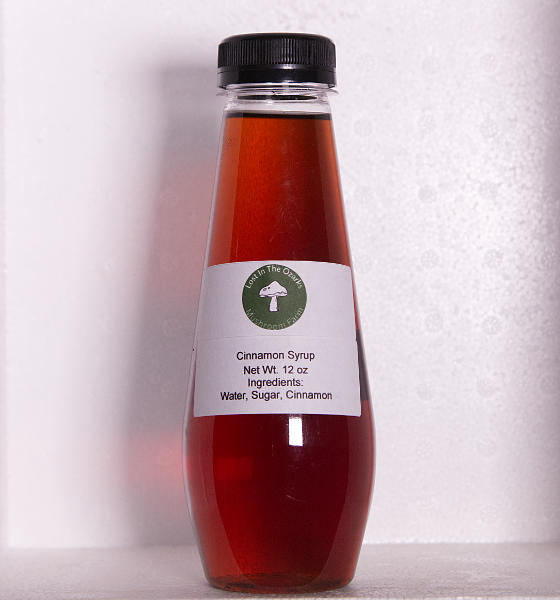Cinnamon, a spice revered since ancient times for its culinary and medicinal properties, has garnered significant interest in the health community. With its distinctive sweet and warm flavor, this aromatic spice is not just a kitchen staple but also a powerhouse of health benefits. This article delves into the science behind cinnamon health benefits, offering a comprehensive exploration of its potential impacts on various aspects of health.
Composition of Cinnamon
Key Compounds: Central to the health benefits of cinnamon are compounds like cinnamaldehyde, cinnamic acid, and cinnamate. These bioactive components are credited with most of cinnamon’s potent effects, including anti-inflammatory and antioxidant properties.
Types of Cinnamon: There are two types of cinnamon – Ceylon and Cassia. Ceylon, known as ‘true cinnamon,’ is milder than the stronger and more commonly used Cassia variety. It’s important to distinguish between them, as they vary in their coumarin content, a compound with potential liver toxicity in high doses.
Cinnamon and Blood Sugar Control
Blood Sugar Regulation: Among the most celebrated cinnamon health benefits is its ability to regulate blood sugar. Studies indicate that cinnamon can reduce fasting blood sugar levels and may improve insulin sensitivity. In a study conducted by Khan et al. (2003), intake of 1, 3, or 6 grams of cinnamon per day was found to lower serum glucose, triglyceride, LDL cholesterol, and total cholesterol in people with type 2 diabetes.
Insulin Sensitivity: Cinnamon’s role in enhancing insulin sensitivity is crucial for metabolic health. This effect can aid in the management of conditions like type 2 diabetes and has been supported by various studies, including one by Hlebowicz et al. (2007), which observed improved insulin response and lowered blood glucose levels after cinnamon intake.
Anti-Inflammatory Properties
Cinnamon’s ability to reduce inflammation is one of its key therapeutic properties. Chronic inflammation is linked to numerous health issues, including heart disease and cancer. A study by Schink et al. (2018) highlighted cinnamon’s potential in suppressing inflammatory responses, making it beneficial for long-term health maintenance.

Cinnamon’s Antioxidant Benefits
Rich in Antioxidants: Cinnamon is loaded with potent antioxidants, such as polyphenols. These substances help fight oxidative stress and may reduce the risk of chronic diseases. The antioxidant activity of cinnamon, as discussed in a review by Rao and Gan (2014), places it at the top of the list of foods with the highest antioxidant content.
Heart Health and Cinnamon
Heart Disease Risk: Regular consumption of cinnamon has been linked to a reduced risk of heart disease, the world’s most common cause of premature death. Cinnamon has been found to reduce several of the key risk factors for heart disease, including high cholesterol and high triglyceride levels, as reported by Akilen et al. (2010).
Cinnamon and Neurodegenerative Diseases
Neuroprotective Effects: Cinnamon has shown promise in the fight against neurodegenerative diseases. Its compounds appear to inhibit the buildup of a protein called tau in the brain, which is a hallmark of Alzheimer’s disease. A study by Peterson et al. (2009) revealed that cinnamon could help mitigate the effects of Alzheimer’s and Parkinson’s diseases.
Cinnamon in Cancer Prevention and Treatment
Anti-Cancer Properties: Emerging research suggests that cinnamon may help in the prevention and treatment of cancer. It acts by reducing the growth of cancer cells and the formation of blood vessels in tumors and appears to be toxic to cancer cells, causing cell death. A study by Kwon et al. (2010) supports these findings, though more research is needed.
Other Health Benefits
Besides its anti-diabetic and anti-cancer properties, cinnamon offers a range of other health benefits. Its antimicrobial effects can combat various infections, and it’s also known for aiding in digestion and providing relief from menstrual pain.
Incorporating Cinnamon into Your Diet
Adding cinnamon to your diet can be both delicious and healthful. It can be sprinkled on breakfast cereals, added to smoothies, or used in baking. However, it’s important to consume cinnamon in moderation due to the potential adverse effects of excessive intake, particularly the Cassia variety.
Conclusion
The health benefits of cinnamon are vast and varied, making it a valuable addition to a balanced diet. From improving metabolic health to offering neuroprotective effects, cinnamon is more than just a spice. Its potential to enhance overall health and prevent chronic diseases is a topic of ongoing research and interest.
Be sure and visit our list of articles for more great info on sustainable living, as well as edible and medicinal plants.
You might also like to try our Cinnamon Infused Syrup.

FAQs
Q: Is a spoonful of cinnamon a day good for you?
A: While cinnamon offers numerous health benefits, consuming a spoonful a day may be excessive and not recommended. It’s important to consume cinnamon in moderation, as high quantities, especially of Cassia cinnamon, can lead to adverse effects due to its coumarin content.
Q: What happens to your body if you eat cinnamon every day?
A: Eating cinnamon every day in moderate amounts can have several positive effects, such as improved blood sugar control, reduced inflammation, and enhanced heart health. However, it’s crucial to consume it within recommended limits to avoid any potential negative impacts.
Q: What are the healing properties of cinnamon?
A: Cinnamon is known for its anti-inflammatory, antioxidant, and antimicrobial properties. It also has potential benefits in managing blood sugar levels, reducing risk factors for heart disease, and may have neuroprotective effects.
Q: Does cinnamon reduce belly fat?
A: There is limited scientific evidence directly linking cinnamon to belly fat reduction. However, its potential effects on improving metabolism and regulating blood sugar levels might indirectly support weight management and fat loss.
Q: What are the 10 benefits of cinnamon?
A: The top 10 benefits of cinnamon include:
- Lowering blood sugar levels.
- Reducing inflammation.
- Antioxidant properties.
- Improving heart health.
- Potentially reducing the risk of neurodegenerative diseases.
- Antimicrobial effects.
- Aiding in digestion.
- Alleviating menstrual pain.
- Possibly having anti-cancer properties.
- Enhancing insulin sensitivity.
Q: Should you take cinnamon in the morning or at night?
A: There’s no specific time recommended for consuming cinnamon. However, taking it in the morning can be beneficial for regulating blood sugar levels throughout the day. Some also prefer taking it at night for its potential soothing effects.
Q: Which type of cinnamon is healthiest?
A: Ceylon cinnamon, often referred to as ‘true cinnamon,’ is considered healthier than Cassia cinnamon. It has lower coumarin content, which is preferable for long-term consumption.
Q: Is cinnamon safe for your liver?
A: Cinnamon, especially the Cassia variety, contains coumarin, which can be harmful to the liver in large doses. Consuming cinnamon in moderation is generally safe, but high doses or prolonged use should be approached with caution, especially for individuals with existing liver conditions.
Q: How long does it take to see the benefits of cinnamon?
A: The time frame to see the benefits of cinnamon can vary depending on the individual and the specific health concern. Some benefits, like its impact on blood sugar levels, can be observed relatively quickly, within a few weeks, while others, like heart health improvements, may take longer to become evident.
References
- Khan, A., et al. (2003). Cinnamon Improves Glucose and Lipids of People With Type 2 Diabetes. Diabetes Care.
- Hlebowicz, J., et al. (2007). Effect of cinnamon on postprandial blood glucose, gastric emptying, and satiety in healthy subjects. The American Journal of Clinical Nutrition.
- Schink, A., et al. (2018). Anti-inflammatory effects of cinnamon extract and identification of active compounds influencing the TLR2 and TLR4 signaling pathways. Food & Function.
- Rao, P.V., and Gan, S.H. (2014). Cinnamon: A Multifaceted Medicinal Plant. Evidence-Based Complementary and Alternative Medicine.
- Akilen, R., et al. (2010). Glycated hemoglobin and blood pressure-lowering effect of cinnamon in multi-ethnic Type 2 diabetic patients in the UK: a randomized, placebo-controlled, double-blind clinical trial. Diabetic Medicine.
- Peterson, D.W., et al. (2009). Cinnamon extract inhibits tau aggregation associated with Alzheimer’s disease in vitro. Journal of Alzheimer’s Disease.
- Kwon, H.K., et al. (2010). Cinnamon extract induces tumor cell death through inhibition of NFkB and AP1. BMC Cancer.
